Thank you dear friends, readers, participants and lovers of the quiz and the blog!
Thank you for the overwhelming response! It was also nice to see you, Lomo and Andi, who put their annual appearance at the birthday celebrations. Good to know, that you are there somewhere in the background. Maybe this is also a good opportunity to thank all the dear readers, who read the posts but can’t respond. THANK YOU everybody for all the support, love and affection you shower on me and the blog.

It was great fun for me to put the quiz together, but what was difficult, was to give points. In fact most of the participants gave all the answers right. There were only small technical mistakes, like forgetting to name a singer or the film name explicitly. So the points scored show rather my stringency, or shall we say tight-fistedness in giving points, rather than the participants’ knowledge of the songs.
Nobody got the answer to the 20 points question. What’s more, some also attempted to solve it. In fact, I would have been really surprised if anybody had got it right. Who would keep the statistics of this blog? 🙂
Maybe I should have framed the question properly. My mistake!

Sunehriyaadein had the best go at that question and her answer had me in splits for hours. With her kind permission I’m sharing it here.
Read the rest of this entry »
Tags: A big white mausoleum, aaja re aa zaraa aa lehra ke aa zara aa, above the second floor, AK, Anand Bakshi, Andi, Anniversary Quiz Answers, Anu, Aparna, Arunkumar Deshmukh, Asha Bhosle, Asha Parekh, Asha-Rafi, Ava, bachpan ke din bhi kya din the, Badi Behen [1949], Bina Rai, blames it on somebody, broken heart and don’t want to live anymore, chale jaanaa nahin, Chris, come hither a bit = aaja re aa zaraa aa, coy boy toy Roy, Cycle, dance till it dies, Dave, dekhiye sahibon woh koi aur thi, dev anand, Dharmendra, don’t go after meeting the eyes, Elder sister, Elvis and a wish, Flames, Footpath [1953], geeta bali, Geeta Dutt, Gold = Hema Malini, Hemant Kumar, Husnlal Bhagatram, Jaal [1952], jab dil hi toot gaya, jab tak hai jaan jaan-e-jahan, Joy Mukherjee, K. L. Saigal, kaisa jaadoo daalaa re, kaisa jadoo daalaa re, Khayyam, Kishore Kumar, Lalitha, Lata Mangeshkar, Laxmikant-Pyarelal, Lomo, Lotus-like, Love in Tokyo [1966], Madan Mohan, Majrooh Sultanpuri, Manna Dey, Meena Kumari, Miss Fish, Mohd. Rafi, Moon-Art, Mukesh, nain milaake, Nalini Jaywant, Naujawan [1951], Naushad, Pacifist, punished for love, Quiz Answers, R. D. Burman, Raja, Rajinder Krishan, Roshan, S. D. Burman, Sahir Ludhianvi, Saigal, Sardar Jafri, Shahjehan [1946], Shailendra, Shammi Kapoor, Shankar-Jaikishan, Shashikala, Sholay [1975], songsofyore.com, Sujata (1959), Sujata (means of a good caste), Sunehriyaadein, Taj Mahal [1963], Teesri Manzil [1966], thandi hawayein lehrake aaye, The childhood days spent like a butterfly, The cool breezes blowing, The Emperor of the world, the magician’s spell, the net, the night and moonlight will not come again, the pedestrian zone, The sacred book, The stringed instrument, where the sun rises, woh koi aur thi, ye raat ye chandani phir kahan, Youthful, zurm e ulfat pe hamen log sazaa dete hain
Ten of my favourite Waheeda Rehman songs
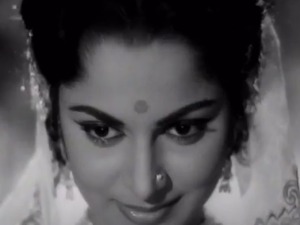 Waheeda Rehman! Just spelling out that name conjures a vision of great beauty for me. Beauty yes, but not coquette, not of a siren, very down to earth beauty, which radiates warmth. A smile, which brightens up your day. Grace, which mesmerises you. Eyes so expressive, that they could show a whole kaleidoscope of emotions and of a depth that one could lose oneself in it. An ethereal beauty! You would say how do a down-to-earth and ethereal go together. Well, that is what Waheeda Rehman is all about. Bringing together contradictions like truth always is. And truth is beautiful and divine. No wonder Guru Dutt sings and describes her a chaudhvin ka chaand (the full moon) in the film by the same name.
Waheeda Rehman! Just spelling out that name conjures a vision of great beauty for me. Beauty yes, but not coquette, not of a siren, very down to earth beauty, which radiates warmth. A smile, which brightens up your day. Grace, which mesmerises you. Eyes so expressive, that they could show a whole kaleidoscope of emotions and of a depth that one could lose oneself in it. An ethereal beauty! You would say how do a down-to-earth and ethereal go together. Well, that is what Waheeda Rehman is all about. Bringing together contradictions like truth always is. And truth is beautiful and divine. No wonder Guru Dutt sings and describes her a chaudhvin ka chaand (the full moon) in the film by the same name.
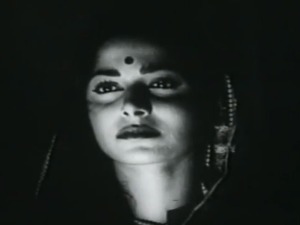
There was and is more to Waheeda than her beauty. A versatile actress, she proved her acting prowess again and again in different films. She showed their highs and lows, their dark and brighter sides, but what she gave them all was a human quality. A vulnerability, which made them connect to you. It might be the street smart hooker of Pyaasa or the career-oriented Rosie of Guide or the repentant Shanta waiting for her husband in Phagun. You could relate to all of them. You might not agree with them, but you could empathise with them.
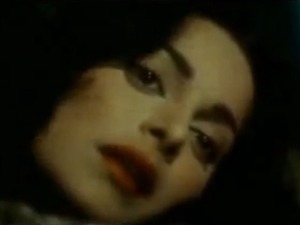
Choosing ten songs from her films was not easy. Thus I laid some criteria for choosing them.
a. The film must have her in a main role.
b. It must be a solo song
c. Waheeda must be lip-syncing to the song.
Dustedoff and Sunehriyaadein have already published a post of their favourite Waheeda Rehman songs and Anu of her favourite Waheeda roles. This post began as a comment at Sunehriyaadein’s post. Over the years it has changed indeed! Enjoy!
Read the rest of this entry »
Tags: aa aa bhi jaa raat dhalne lagi, Asha Bhosle, badle badle mere sarkar, Balkavi Bairagi, Chaudhvin Ka Chaand [1961], dev anand, Ek Dil Sau Afsane 1963], Guide [1965], guru dutt, Hasrat Jaipuri, Hemant Kumar, Jaidev, Lata Mangeshkar, Majrooh Sultanpuri, meri baat rahi mere man me, Mujhe Jeene Do [1963], My ten favourite Waheeda Rehman songs, Neeraj, o jaadugar pyaar ke ye bataa, Phagun [1973], piyaa tose nainaa laage re, Prem Pujari [1970], raat bhi hai kuchh bheegi bheegi, Raj Kapoor, rangeela re tere rang me, Ravi, Reshma Aur Shera [1972], Roop Ki Rani Choron Ka Raja [1961], S. D. Burman, Sahib Bibi Aur Ghulam [1962], Sahir Ludhianvi, sandhya jo aaye man ud jaaye, Shailendra, Shakeel Badayuni, Shankar-Jaikishan, Sunil Dutt, Teesri Kasam [1967], tu chanda maina chandani, tum to dil ke taar chhed kar, Waheeda Rehman
Arunji, whose anecdotes and memories of the good old times we adore and whose filmi knowledge, we admire, springs in the arena once again to fill up the empty time space here. Thank you Arunji! Without much ado, I pass the mike to him.
Arunkumar Deshmukh’s ten favourite inspired song-pairs
EK DIL DO JAANE- EK TUNE DO GAANE
The other day I was reading a book in my Drawing Room,when I heard my college going grandson telling a small boy,” you don’t know,but in our times,things were not like this…”
I smiled. Every generation thinks that their times were better that the present one.
I wondered whether if I tell today’s children that in my college days,Petrol was costing only 5 Rupees a Gallon (around 3.7 Litres) or that a car driver could be hired on a salary of Rs.150 pm, will they believe it ? We never believed when our elders told us that Gold was bought by them at 10 Rs. a Tola (about 11.4 Gms.),because at the time of my marriage Gold was costing 150 rupees per Tola(about 11.4 gms).Today when Gold has crossed the barrier of rs.30000 for just 10 gms,these stories look like Arabian Night stories,indeed !!
Sometimes I keep thinking if old times were better or the present times are better.I have not been able to come to any conclusion so far.
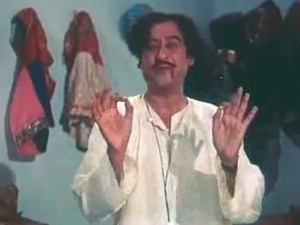 Read the rest of this entry »
Read the rest of this entry »
Tags: Aa jao tumhe dil ka, Aakhri Dao [1958], Aankhon se jo utari hai dil mein, Anand Bakshi, Anil Biswas, Anjum Pilibhiti, Anmol Ghadi [1946], Arun Deshmukh, Arun Deshmukh’s ten favourite inspired song-pairs, Arzoo [1965], Asha Bhosle, Aye phoolon ki raanee, B R Sharma, Chunariya [1948], De di hamen Azaadi, Dharamputra [1961], Didi [1948], Dil e naashaad ko jeene ki hasrat, Dil jalta hai to jalne de, Dr.Safdar 'Aah', Ek phool do Maali [1969], Guest Post, Hamee se muhabbat hamee se Ladai, Hansraj Behl, Hasrat Jaipuri, Heer [1956], Hemant Kumar, Jaadoo [1951], Jagriti [1954], Jeevan Mrityu [1970], Kavi Pradeep, Kiska deep Jalta hai, Kya mil gaya Bhagwan, Lata Mangeshkar, Laxmikant-Pyarelal, Leader (1964), Madan Mohan, Main jab bhi akeli hoti hoon, Majrooh Sultanpuri, Mamta [1966], Manna Dey, Mitti Me Sona [1960], Mohd. Rafi, Mukesh, Mukund Masurekar, N.Datta, Naadan muhabbat walon ke, Naujawan [1951], Naushad, Naya Daur [1957], Noorjehan. Dil leke daga denge, O. P. Nayyar, Pehli nazar [1945], Phir milogi kabhi, Phir Wohi Dil Laya Hoon [1963], Poocho na hamein, Prem Dhawan, Rahen na rahen hum, Raja Mehdi Ali Khan, Ravi, Roshan, S. D. Burman, S. H. Bihari, Sahir Ludhianvi, Saraswati Kumar Deepak, Shakeel Badayuni, Shanker Das Gupta, Shanker-Jaikishen, Thandi hawayen, Vo chaand muskuraya, Yeh parda hataa do, Yeh Raat Phir Na Aayegi [1966], Zamane mein aji kai aise naadan
My ten favourite insomnia songs
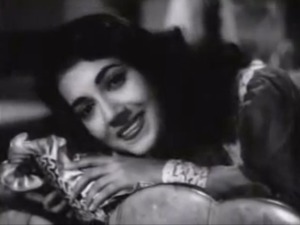 Spending the night in bed tossing around has happened to each and everybody of us. One would like to sleep, but the stream of thoughts just don’t end. The body is tired, but the mind wide awake. You tell yourself, that you have so many things to do the next day and the most appropriate thing to do now would be to sleep. You get irritated over it, which make matters only worse. And then in the wee hours of the morning, when you are supposed to be soon getting up, you fall asleep in sweet, sweet slumber! A dear friend of mine, Raja, was in this situation a few days back. This unfortunate incident made me come up with this list.
Spending the night in bed tossing around has happened to each and everybody of us. One would like to sleep, but the stream of thoughts just don’t end. The body is tired, but the mind wide awake. You tell yourself, that you have so many things to do the next day and the most appropriate thing to do now would be to sleep. You get irritated over it, which make matters only worse. And then in the wee hours of the morning, when you are supposed to be soon getting up, you fall asleep in sweet, sweet slumber! A dear friend of mine, Raja, was in this situation a few days back. This unfortunate incident made me come up with this list.
But the songs below don’t sing about the situation described above, but are rather moans of separated lovers or are freshly-fallen-in-love pairs. For this list, I have chosen songs with neend(iyaa) na aaye in the mukhdaa (refrain). I hope you like them as much as I do.
Read the rest of this entry »
Tags: Aji Bas Shukriya [1958], Amar Prem [1974], Amirbai Karnataki, Amrita Singh, Anand Bakshi, Anil Biswas, Anita Guha, bairan neend na aaye mohe, bairan nindiya kyun nahin aayi, beimaan tore nainawaa neendiya na aaye, Chachaa Zindabad [1959], D. N. Madhok, Dhun [1953], Dilip Kumar, Faroque Kaiser, geeta bali, Hansraj Bahl, Hemant Kumar, insomnia, jaane kyaa baat hai, Kaifi Irani, Kalyanji-Anandji, Lata Mangeshkar, Madan Mohan, Madhubala, Meena Kumari, Miss Mary [1957], Munimji [1955], my ten favourite insomnia songs, Nalini Jaywant, Nargis, neend na aaye, neendiya na aaye, o neend na mujhko aaye, Post Box 999 [1958], Pujaari [1946], R. D. Burman, raina beeti jaaye, Rajesh Khanna, Rajinder Krishan, Roshan, S. D. Burman, saajan bin neend na aave, saari saari raat teri yaad sataye, Sahir Ludhianvi, Shakila, Sharmila Tagore, so gaya saara zamana, Sunil Dutt, Sunny Deol, Sunny [1984], Tarana [1951], tum bin piya nindiya na aaye, Wali Sahab
My ten favourite kaun aayaa songs
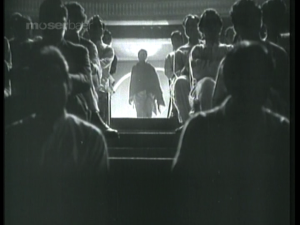
I’m sure it must have happened to you as well. Sometimes you meet a person and the mere presence of this man/woman makes you feel good. You need not talk about overtly intelligent topics. You might not laugh heartily, but just being in the presence of that particular person makes you feel wonderful. It makes you feel as if you have experienced inner growth. Few days back, I again had such an experience, where I was left wondering: What was that? I was so elated, that I posted the song yeh aaj meri zindagi me kaun aa gaya on a forum I frequent, which gave me the idea for this post.
Unlike my last experience, the encounters making the characters of Hindi film exclaim “yeh kaun aayaa” are mostly of romantic nature. Some feel that spring has come, while others feel the moon has risen. Everybody has his or her own of exclaiming and rejoicing in this emotion. I personally think that a good song can convey more than the words themselves. So, enjoy my ten favourite kaun aayaa songs and tell me about yours.
Read the rest of this entry »
Tags: Anand Bakshi, Anoop Kumar, Asha Bhosle, Asha Parekh, Baazi [1951], Deepti Naval, Dekh Kabira Roya [1957], dekho yeh kaun aayaa, Dil Deke Dekho [1959], Farooque Sheikh, Geeta Dutt, imi Garewal, Imtihaan [1974], Indu Jain, Jawani Diwani [1972], Jaya Bhaduri, Kalpana Karthik, Katha [1983], kaun aayaa kaun aayaa, kaun aayaa ki nigahon me chamak jaag uthi, kaun aayaa mere man ke dwaare, kaun yeh aayaa mehfil me, Kishore Kumar, Lata Mangeshkar, Laxmikant-Pyarelal, Look who’s here!, Madan Mohan, Majrooh Sultanpuri, Manna Dey, Mohd. Rafi & Usha Khanna, Munshi Aarzoo, my ten favourite kaun aayaa songs, Nartaki [1939], Naseeruddin Shah, Naushad, Pankaj Mullick, Poonam Dhillon, R. D. Burman, Raaj Kumar, Raj Kamal, Rajendra Krishan, Rajendra Kumar, Randhir Kapoor, Ravi, rosha maati, roz shaam aati magar aisi na thi, S. D. Burman, saamne ye kaun aayaa dil me huyi hulchal, Saathi [1968], Sadhana, Sahir Ludhianvi, Savere Wali Gaadi [1986], Shakeel Badayuni, Shammi Kapoor, Sunny Deol, Suresh Wadkar & Asha Bhosle, tambadi maati, Tanuja, Usha Khanna, Vinod Khanna, Waqt [1965], yeh kaun aaj aayaa sawere sawere, yeh kaun aayaa, yeh kaun aayaa ke mere dil ki duniya me bahaar aayi, yeh kaun aayaa roshan ho gayi mehfil kisake naam se
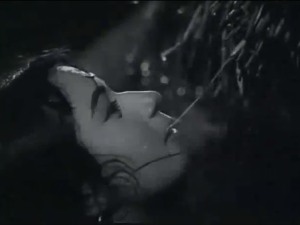 Today, on the occasion of Nanda’s birthday, here is a different kind of post; Nanda and her eight different voices. If you were a leading actress in the 60s and 70s, like Nanda, you could spend your entire career without having had lip-synced to anybody but Lata and Asha’s voice. Since Lata had that tiff with Rafi, it could be possible that Suman Kalyanpur also lent her voice to you in a duet with him. Thus, it is amazing to see that Nanda moved her lips to eight singers in her short career.
Today, on the occasion of Nanda’s birthday, here is a different kind of post; Nanda and her eight different voices. If you were a leading actress in the 60s and 70s, like Nanda, you could spend your entire career without having had lip-synced to anybody but Lata and Asha’s voice. Since Lata had that tiff with Rafi, it could be possible that Suman Kalyanpur also lent her voice to you in a duet with him. Thus, it is amazing to see that Nanda moved her lips to eight singers in her short career.
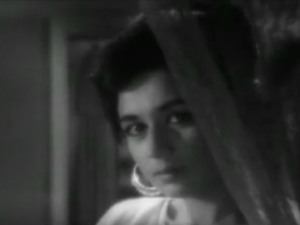 Today is also Madhu-Dustedoff’s birthday. So here is to both of your birthdays!! Read the rest of this entry »
Today is also Madhu-Dustedoff’s birthday. So here is to both of your birthdays!! Read the rest of this entry »
Tags: Agra Road [1957], Akashdeep [1965], Asha Bhosle, betaab nigahon se mujhe dekhne walo, Chhalia [1973], Chitragupta, Dustedoff’s birthday, Geeta Dutt, Gumnaam [1965], gunahao ka chirag jal na sakega, Hasrat Jaipuri, jaan-e-chaman shola badan, Kala Bazaar [1960], Khaiyyam, Lata Mangeshkar, Leela Chitnis, Majrooh Sultanpuri, mile to phir jhuke nahin, Mohabbat Isko Kahete Hain [1965], Mohd. Rafi, Mukesh, na main dhan chahoon, Nanda's eight voices, Nanda’s birthday, Nartaki [1963], Navin Nischol, pike ham tum jo chale, Prem Dhawan, R. D. Burman, Rajinder Krishan, Ravi, Roshan, S. D. Burman, Shailendra, Shakeel Badayuni, Shankar-Jaikishan, Sharda, Shashi Kapoor, Sudha Malhotra, Suman Kalyanpur, Sunil Dutt, theriye hosh me aa loo, Usha Mangeshkar, Vani Jairam, zindagi me aap aaye
My ten favourite Nalini Jaywant solo songs
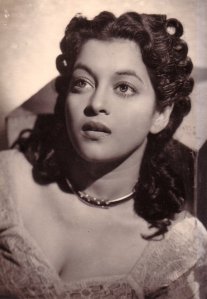
If I ask my niece who is Nalini Jaywant, she will most probably say that she must be one of my innumerable aunts. In fact, I do have a distant aunt with the name of Nalini. But the actress Nalini Jaywant seems to have faded into oblivion. When one reads discussions on Hindi film actresses of the 50s, her name hardly appears. Maybe the reason is her self-imposed exile, otherwise it is hard to understand, why she should disappear from public memory. In her heydays she was considered the most beautiful actress and as a talented actress by her colleagues.
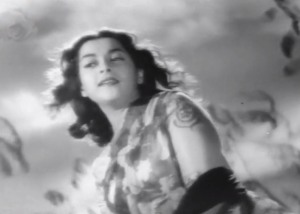
She started her career in her teenage years, playing sister (the title role) to Sheikh Mukhtar in Mehboob Khan’s Bahen [1941], where she sang all her songs in her own voice.. Her films in the 40s were nothing to write home about, till she made a splash with Anokha Pyar [1948] as the all-sacrificing part of the triangle, showing Dilip Kumar once again between two strong ladies, the other being Nargis. After that there was no looking back for her, acting in hit films like Samadhi, Naubahar, Rahi [1952], Shikast, Munimji, Nastik and Kala Pani. Like many of her contemporaries she couldn’t carry her success streak into the 60s and retired from the silver screen. She appeared only in two films in the 80s Bandish [1980] and Nastik [1983].
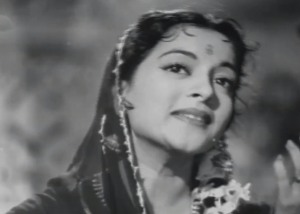
More detailed writing on her career can be found at Upperstall and by Shishir Krishna Sharma on his blog. The first and last photo in this post are from his collection. Thank you Shishirji for the loan!
Here are my ten favourite solo songs of this beautiful and talented actress. Enjoy!
Read the rest of this entry »
Tags: abhi shaam aayegi niklenge taare, ae ri main to prem deewani, Ajit, Asha Bhosle, Ashok Kumar, beimaan balama man bhi jaa, C Ramchandra, chand madham hai aasman chhup hai, dev anand, dil laga ke kadar gayi pyaare, Dilip Kumar, ghayal hiraniya main ban ban, Hum Sab Chor Hain (1956), jab nain mile nainon se, Jadoo [1951], Kala Paani [1958], kanha bajaye bansuri aur gwale bajaye manjire, kare badra tu na jaa, Lata Mangeshkar, Madan Mohan, Majrooh Sultanpuri, Meerabai, Munimji [1955], My ten favourite Nalini Jaywant solo songs, Nalini Jaywant’s second death anniversary, Nastik [1954], Nau Bahar [1952], Naujawan [1951], Naushad, O. P. Nayyar, Pradeep, Premnath, Railway Platform [1955], Rajinder Krishna, Roshan, S. D. Burman, Samadhi [1950], Shailendra, Shakeel, Shammi Kapoor, Shamshad Begum, Shankar-Jaikishan, Shikast [1953], Shishir Krishna Sharma, Sunil Dutt, Suresh, thandi hawayein lehra ka aaye
Arunji has been a loyal follower of this blog and has always been very much encouraging with his comments and suggestions. This is his second post here on this blog in the role of an author. It is an honour for me that he agreed to do this post. His personal reminiscences as usual makes this post more dear to me. Thank you Arunji!
Arunkumar Deshmukh’s ten favourite songs with “interesting” lyrics
Words like ‘Dumbak dumba’ or ‘chidi chapata ‘ or Ding dong etc always attracted me in Hindi songs. In the early 50s I was an avid listener of Radio Ceylon. They used to have a weekly programme of ‘ Anokhe Bol ‘ for 15 minutes. I waited thru the week for this programme. it was my favourite programme. Songs played in this programme had odd words in it and those songs haunted me for the entire week till the next programme, when next set of songs took over.
 From my early childhood i was very fond of seeing films and enjoying its music. We were in Hyderabad State. This being a Muslim ruled state; there were many peculiar things in those days. For example, in most Theatres, there used to be a class called “ZANANA “(Ladies Only). This was like a balcony. It was meant for those Burkha-clad Muslim women who wanted to see the films, without being seen by the men folk. A huge cloth curtain was dividing the Zanana Class and the rest of the Theatre. A She-male or a He-female (I don’t know which! ) was appointed with the exclusive duty of removing the huge curtain once the film started and closing it before or as soon as the Interval or the end of the film, so that the women could see the film and still not get exposed to the prying eyes of the men folk in the theatre.
From my early childhood i was very fond of seeing films and enjoying its music. We were in Hyderabad State. This being a Muslim ruled state; there were many peculiar things in those days. For example, in most Theatres, there used to be a class called “ZANANA “(Ladies Only). This was like a balcony. It was meant for those Burkha-clad Muslim women who wanted to see the films, without being seen by the men folk. A huge cloth curtain was dividing the Zanana Class and the rest of the Theatre. A She-male or a He-female (I don’t know which! ) was appointed with the exclusive duty of removing the huge curtain once the film started and closing it before or as soon as the Interval or the end of the film, so that the women could see the film and still not get exposed to the prying eyes of the men folk in the theatre.
Read the rest of this entry »
Tags: Aawaz, Ajit, Aka baaka chidi chadaka, Asha, Asha Bhosale, Ashok Kumar, Aye Ichak Beechak Churr, Aziz Kashmiri, Bawre Nain, Bhagwan Sinha, Bimal Roy, C Ramchandra, chhupa chhupi agad bagad, Cuckoo, Denewala Jab bhi deta, dev anand, Dhitang Dhitang bole, Dholak, Do Bigha Zameen, Eena Meena Dika, Ek Do Teen, Ek Thi Ladki, Funtoosh, geeta bali, Gupchup gupchup pyar Karen, Halla Gulla Layilla, Haryala sawan aaya, Hemant Kumar, Hyderabad State, k. n. singh, Kidar Sharma, Kishore Kumar, Lara Lappa, Lata, Majnu, Manna Dey, Meena Kumari, Meena Shorey, Mehmood, Nimmi, Prem Dhawan, Rafi, Raj Kapoor, Rajendra Krishna, Roshan, S. D. Burman, Sahir Ludhiyanvi, Sailesh Mukherjee, Salil Chaudhary, Sandhya Mukherjee, Satish Batra, Savera, Sazaa, Shailendra, Shamshad Begum, Sheila Ramani, Shyamsunder, Vinod, Vyjayantimala, Zanana Class
Arunji has been a loyal follower of this blog and has always been very much encouraging. With this post he makes his debut here on this blog in the role of an author. It is an honour for me that he agreed to do this post. His personal reminiscences makes this post more dear to me. Now, without much ado I give the microphone to him.

It is said, that Indian Films represent the life in India. There is, however, a section of people who believe that the society emulates what is shown in films. So, what is the truth?
When the Talkie came to India and films were made, only one thought was there in the minds of the producers and that was to make films based on Mythological and Historical stories.
This went on for first 5-6 years, but then film makers realised that people will like their films if they could relate their lives with it. So, films based on stories with village background, the caste system, dowry, the moneylender and the farmers were made. These became popular. The urban and the city viewer who was educated were looking for something different. Thus, films were made on love stories set in cities and bigger towns.
Those days middle class was growing in India by leaps and bounds and these were the people, who could spend the money. Now these were the people the films were aimed at.
In the 40s and 50s, the most common transportation vehicle was CYCLE. Almost everybody knew how to ride a cycle. Few people had cars and motorcycles had not yet become popular. Scooters were yet unknown.
I remember, I got my first Cycle when I was in school. My school was 3-4 miles far and I used the cycle to go to school in the morning and to go to friends in the evening. There were many cycles on the road and there was a Traffic rule that every cycle must have a Lamp on the Cycle’s handle as a caution to other vehicles. These lamps were kerosene and Cotton-batti lamps in the night. Sometimes, the lamps got extinguished due to wind. Unaware of this, the police used to catch us. On hearing our plea about the lamp, wind etc, the police would touch the glass of the lamp. if it was still warm, we were let out with a warning only. This was the life in late 40s and early 50s, when I was in Hyderabad State.

It was natural that now cycles too should feature in films. Imaginative Directors used cycles for the heroes when they chased the heroines and for the heroines when they went on a picnic with sahelis. In many films, the village affluents would be shown as cycle owners and the city people using it for moving about.
Up to the 70s, cycles were part of many films. Slowly, cycles were replaced by scooters, Mopeds and motor cycles in films and by 80s, it was only cars and fancy Mobikes for the heroes. Poor cycles were reduced to be shown, only used by the doodhwalla bhaiyyas (milk-men).
Read the rest of this entry »
Tags: Aas Ka Panchhi [1961], Agra Road [1957], akela hoon main, Ameeta, Arunkumar Deshmukh, Arunkumar Deshmukh’s 10 favourite cycle songs, Asha Bhsole, Baat Ek Raat Ki [1962], C Ramchandra, dev anand, dil mera ek aas ka panchhi, Ek Hi Raasta [1956], G. M. Durrani, Geeta Dutt, Ghulam Haider, Guest Post, Hasarat Jaipuri, Hemant Kumar, Hum Sab Chor Hain (1956), humko hansate dekh zamana jalata hai, I. S. Johar, inse rippy tippy ho gayi, Johnny Walker, Kalyanji-Anandji, Kavi Pradeep, Khan Mastana, Khazanchi [1941], Kishore Kumar, Lata Mangeshkar, main chali main chali, Majnu, Majrooh Sultanpuri, manaa janaab ne pukara nahin, Meena Kumari, Mehmood, Mohd. Rafi, Mukesh, Nutan, O. P. Nayyar, Omprakash Bhandari, Padosan [1968], Paigham [1959], Paying Guest [1957], Prem Dhavan, pyaase panchhi neel gagan ke, Pyaase Panchhi [1961], Qamar Jalalabadi, R. D. Burman, Rajendra Krishna, Rajendra Kumar, Roshan, S. D. Burman, saanwale salone aaye din bahar ke, Saira Bano, sawan ke nazare hain, Shakila, Shamshad Begum, Shankar-Jaikishen, Subir Sen, Sunil Dutt, suno re bhaiyya hum layen hain, Vijay Anand, Wali Saheb
My ten favourite Sadhana songs

Today on your 71st birthday, wish you a happy birthday and many more to come, dear Sadhana! Thanks for the beautiful films and moments, which you have gifted us!
Sadhana, one of the Hindi screen’s beautiful leading ladies. She was a trend-setter in fashion, when nobody even knew this word. She was glamorous, beautiful and more importantly talented actress. Given the trend of the 60s, where the frothy musicals reigned supreme, she got ample scope to show her acting talents in variety of films. Bimal Roy, the ace-director cast her in Parakh (1960) and Prem Patra (1964). Raj Khosla made a trilogy of films with her in central roles Woh Kaun Thi? (1964), Mera Saaya (1966) and Anita (1967).

Her thyroid problem led to an eye ailment, which led to her going on a long treatment in the USA, due to which she was missed on many films. Her come-back films were Intequam (1969) and Ek Phool Do Mali (1969) were hits. The 70s even saw her don the cap of the director for Geeta Mera Naam (1974). The changing trends of the 70s saw her take retirement from the silver screen, though the 70s saw the release of delayed films like Amanat (1975), Vandana (1975) and Mehfil (1981). Her last film Ulfat ki Nayi Manzilein, whose music was released in 1968, got released in 1994. In the song here, we see how the film must have been completed with doubles, in the song, baharon se kahenge nazaroon se kahenge, we see only the back of the character played by her.

I have chosen only solo songs from her films and I have restricted myself to one song pro film.
Enjoy!
Read the rest of this entry »
Tags: aap ki inayaten aap ke karam, Ajay Sahni, Anand Bakshi, Anita [1967], Asad Bhopali, Asha Bhosle, Asli Naqli [1962], Bimal Roy, Biswajeet, dev anand, Dharmendra, Ek Phool Do Mali, Feroz Khan, Geeta Mera Naam [1974], guru dutt, hamne jin ke khwab sajaye, Happy Birthday Sadhana!, Hrishikesh Mukherjee, hum khoob jante hai, Ishq Par Zor Nahin [1970], kareeb aa yeh nazar phir mile, kaun aaya ki nigaahon me chamak jaag uthi, Kishore Kumar naina barse rimjhim rimjhim, kitna rangeen hai ye chaand sitaaron ka samaa, Lata Mangeshkar, Laxmikant-Pyarelal, Madan Mohan, main to tum sang nain milake haar gayi sajana, Manmauji [1962], Manoj Kumar, Mera Saaya [1966], My ten favourite Sadhana songs, Naaz, naino me badra chahe, o mere bairaagi bhanwara, o sajana barkha bahaar aayi, Parakh [1960], Parikshit Sahni, Picnic, Raaj Kumar, Raja Mehdi Ali Khan, Rajinder Krishan, Ravi, S. D. Burman, Saajan Ki Galiyan, Sahir, Salil Chowdhury, Shailendra, Shankar-Jaikishan, Sunil Dutt, suniye zara dekhiye na, tera mera pyar amar, Vandana [1975], Waqt [1965], Woh Kaun Thi [1964], Zaheeda




















